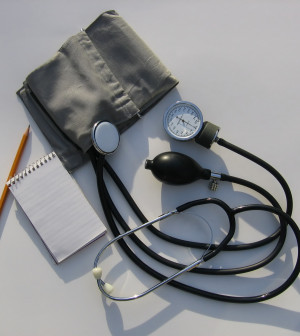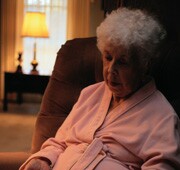- Could Your Grocery Store Meat Be Causing Recurring UTIs?
- Are You Making This Expensive Thermostat Error This Winter?
- Recognizing the Signs of Hypothyroidism
- 10 Strategies to Overcome Insomnia
- Could Artificial Sweeteners Be Aging the Brain Faster?
- Techniques for Soothing Your Nervous System
- Does the Water in Your House Smell Funny? Here’s Why
- Can a Daily Dose of Apple Cider Vinegar Actually Aid Weight Loss?
- 6 Health Beverages That Can Actually Spike Your Blood Sugar
- Treatment Options for Social Anxiety Disorder
Depression After Stroke Linked to Troubled Sleep


Stroke survivors with depression may be at increased risk for sleep problems, a new study suggests.
According to experts, sleep problems are common after stroke and associated with poor health.
In the new study, a team of researchers in Korea looked at nearly 300 people hospitalized with stroke. They found that more than a fifth of them got less than six hours of sleep a night while they were hospitalized.
Three months later, 44 percent of the 199 patients who completed the follow-up still had nighttime sleep problems, such as frequent nighttime awakenings and too little sleep, the team said.
Although the study couldn’t prove cause-and-effect, depression was the main factor associated with sleep problems.
The researchers, led by Smi Choi Kwon of Seoul National University, also found that 39 percent of the patients had more daytime sleepiness than they did before their stroke. Daytime sleepiness was associated with fatigue, amount of stroke-related brain damage, and being female.
Kwon’s group also used a device to look at just where the stroke had affected in the brain, in a subset of 54 patients. They looked especially at the cerebral cortex, a center for sensory and motor function, as well as depression.
So-called “subcortical” stroke — affecting complex systems of arteries deep in the brain — seemed especially tied to disturbed sleep, the research team found.
The study was presented at the American Stroke Association’s International Stroke Conference. Experts note that findings presented at medical meetings are typically considered preliminary until published in a peer-reviewed journal.
More information
The U.S. National Heart, Lung, and Blood Institute has more about stroke.
Source: HealthDay
Copyright © 2026 HealthDay. All rights reserved.










